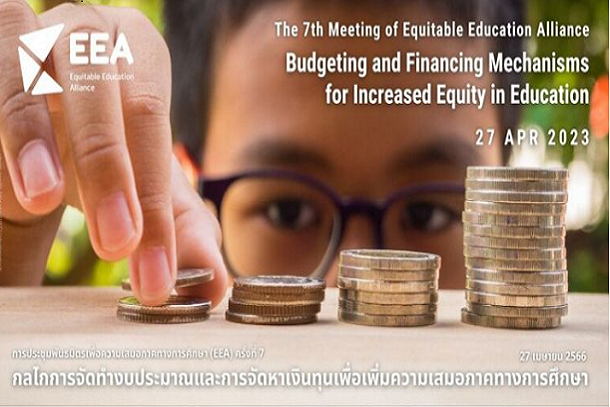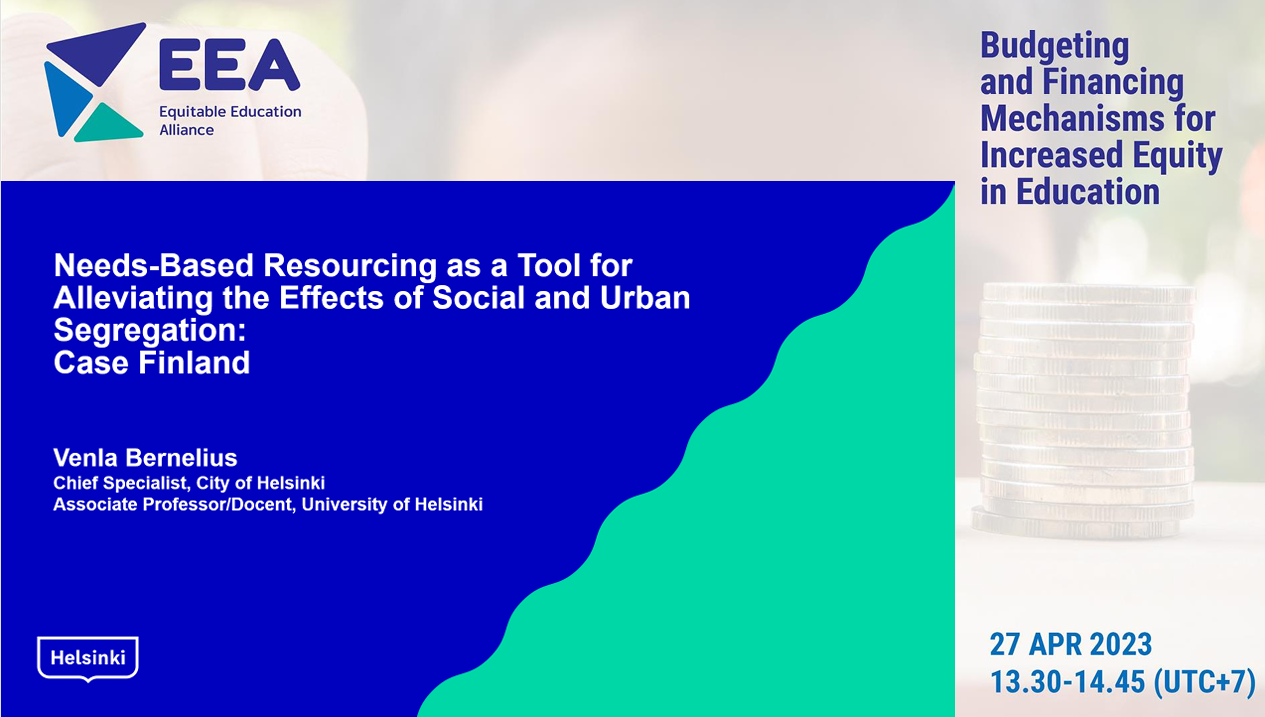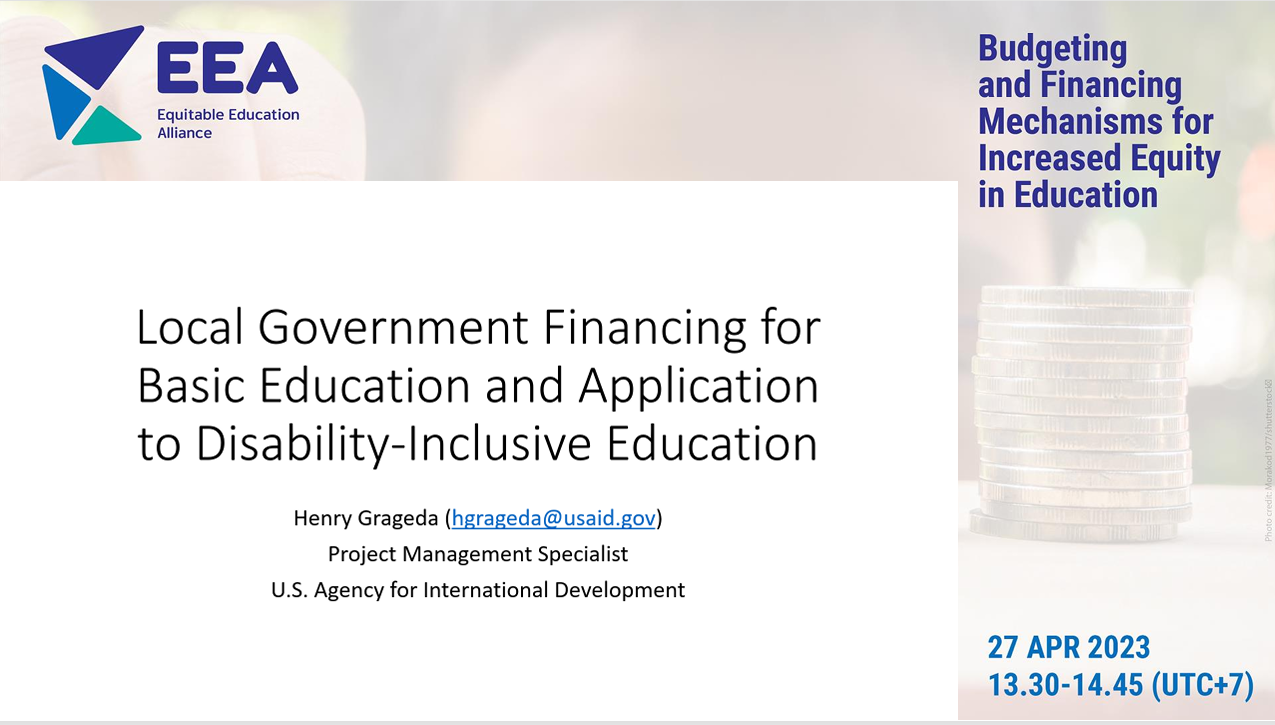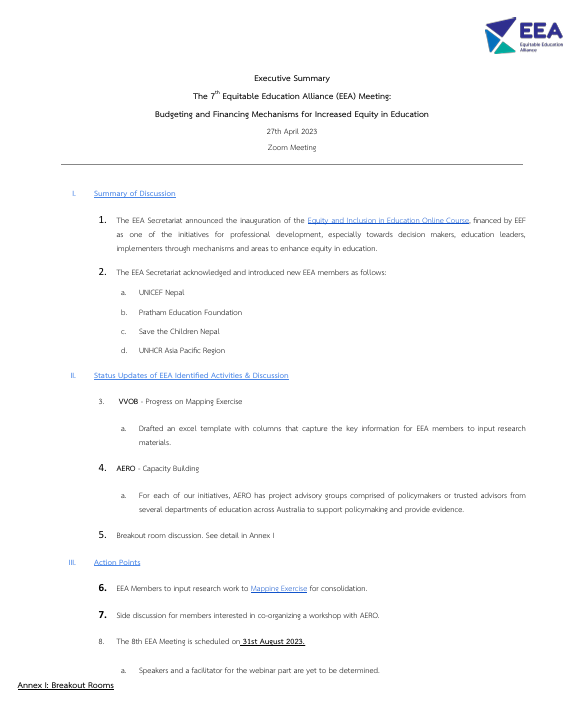
The 7th Meeting of Equitable Education Alliance (EEA): Budgeting and Financing Mechanisms for Increased Equity in Education
Equitable Education Alliance (EEA)
Established in 2020, the Equitable Education Alliance (EEA) is a community of practitioners from organizations, government ministries, agencies, and NGOs who strive to push for a more inclusive and equitable educational system while enhancing the performance of existing equitable education organizations at all levels.
The Alliance convenes at least two meetings annually to discuss and improve equity in education through collaborative efforts. A total of 14 countries and 17 local and international organizations have participated in these meetings, sharing expertise to promote and foster equity in education systems through the four main areas:
- Legal Framework Policy Development
- Budgeting and Financing Mechanisms
- Delivery and Implementation Systems
- Monitoring & Evaluation
7th EEA Meeting Highlights
The 7th EEA Meeting highlights ‘Budgeting and Financing Mechanisms’ for more equitable opportunities in education from national to local level. The meeting consists of two parts:
- Public session
- Closed-door session (for selected EEA members)
The 7th Meeting aims to initiate collaborative opportunities, identify contact points for further development, and plan key activities for 2023.
Equitable Education Hub (EEH)
Launched in late 2022, the Equitable Education Hub serves as a knowledge-sharing platform to support global learners by offering accessible content related to the Alliance’s goals. It fosters equity in education by providing technical and substantive support.
Objectives
- Showcase ‘Budgeting and Financing Mechanisms’ for equitable education from national to local level
- Show case studies on inclusive education for students with disabilities from the Philippines
- Share knowledge and best practices to address equitable education at both area-based and national levels
Expected Participants
- Local education administrators, district directors, school principals, teachers, and equity-focused partners
- Potential EEA members: government agencies, policymakers, NGOs, academics, and like-minded international organizations
- EEA members: representatives from countries, technical experts, and international agencies working in equitable education





